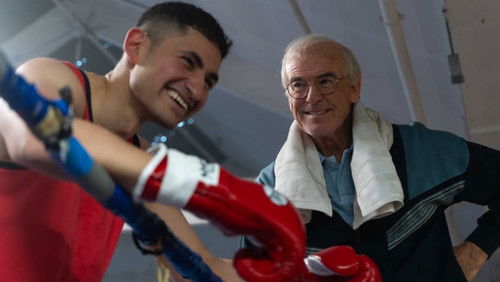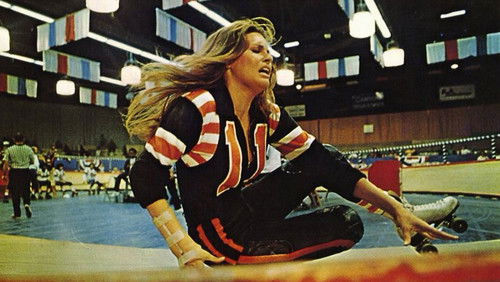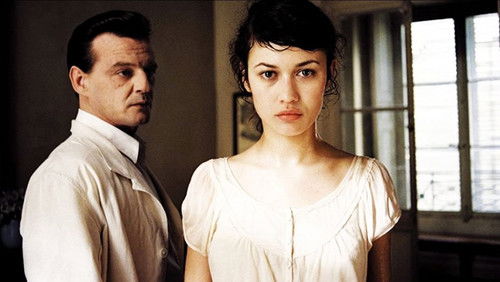Tonî Takitani (2004)
17KTonî Takitani (2004). 1h 15m | K-11
“*whew* Itu0026#39;s been a while since Iu0026#39;ve been this intoxicated by a film… at least not since Februaryu0026#39;s Nobody Knows.u003cbr/u003eu003cbr/u003eTony Takitani is a beautiful poem to loneliness.u003cbr/u003eu003cbr/u003eThe eponymous character is a quintessential loner. As the prologue informs us: His father, a WWII vet who pretty much left most of his soul in POW camp, was not much of a father. His mother died a few days after his death. He has been self-sufficient for most of his life.u003cbr/u003eu003cbr/u003eWe see him mostly by himself, alone near his desk, sketching drawings of motors, engines, amongst other mechanized structures. As the omniscient narrator tell us: Tony doesnu0026#39;t understand the fascination over paintings imbued with passion and ideology. It is certainly fitting for a man bereft of any human connection with another individual to identify with the colder, impersonal realm of mankind.u003cbr/u003eu003cbr/u003eHis lonely streak finally ends when he meets a woman at work. She is pretty, approachable, and most importantly of all, attracted to Tony. After a semi-rocky courting, they finally marry. Tony relishes in this foreign arrangement, but this exchange of intimacy with another person has Tony terrified. He is terrified because, as the narrator informs us, he might be lonely again, regressing back to his former state of isolation.u003cbr/u003eu003cbr/u003eMaybe Iu0026#39;m too hypersensitive for my own good, but I wept a little when I heard these words. I felt that it couldu0026#39;ve not been a more articulate way to express the vulnerability of humans, especially the ones living in this modern age. Tony is aware of the cruel, unrelenting nature of time: Just as his mother died within days of childbirth and his father barely escaped the u0026quot;thin boundaries of life and deathu0026quot; in POW camp, he can easily lose all this one day.u003cbr/u003eu003cbr/u003eAs it is, the inevitable does happen. I shall not reveal the unfortunate fate of Tonyu0026#39;s wife and of their relationship, but the biggest rift in their marriage is her shopaholic tendencies. As she, herself, summed it up during their first encounter together: clothes help alleviate the emptiness she feels. After Tonyu0026#39;s delicate mention about her habits, she frustratingly tries to restrain herself, only to surrender to the compulsions. In lesser hands, this subplot couldu0026#39;ve been ripe for (unintentional) camp, but in director Jun Ichikawau0026#39;s hands, this consuming dysfunction only adds more layers to the filmu0026#39;s restrained and somber mood: Tonyu0026#39;s wife is not in control of her actions, which in turn, diverts his state of love and companionship to loneliness, once again.u003cbr/u003eu003cbr/u003eWith his wife gone, Tony becomes downtrodden, and then obsessed. In a Vertigo-esquire twist, he hires a woman who is the spitting image of his wife to take care of the house while wearing his wifeu0026#39;s fashion couture wardrobe. The hired housekeeperu0026#39;s reaction to the extensive collection of wardrobe is more or less, abnormal–and of which, unexpectedly serves as a waking call for Tony.u003cbr/u003eu003cbr/u003eTony realizes that the only way to obliterate the obsession of his wife is to obliterate all of her clothes. As The Christian Science Monitor pointed out, one of the underlying themes of the film is u0026quot;the complex relationship between objects and memories.u0026quot; As the narrator aptly tell us: the clothes are like lurking shadows; ghosts, if you must. What was once worn by a breathing, living body has now been only relegated to the closet. Tony could not bear looking at the clothes without thinking about her.u003cbr/u003eu003cbr/u003eHis father, the one who has long neglected him, passed away not much longer afterwards. Tony does the same thing to his fatheru0026#39;s belongings (a trumpet and a collection of records): he obliterated them. For what good are objects if they only remind one of pain? One could argue that although Tony and his wife shared different feelings about objects (she wanted to obtain them, whereas he wanted to obliterate them), they had one thing in common: both internalized objects into their inner selves.u003cbr/u003eu003cbr/u003eThe relationship humans have with objects is only a secondary theme. The film, for the most part, is simply about loneliness and how an individual such as Tony deals with that state of loneliness.u003cbr/u003eu003cbr/u003eAs you can tell, I love this film (otherwise, Iu0026#39;d probably not write so damn long). But this film is not for everyone. A couple in the movie theater gave up within twenty minutes into the film. A lady in front of me told her companion (when the movie was over) that she was tempted to sleep throughout the showing.u003cbr/u003eu003cbr/u003eBut if you are a sucker for atmospheric portraits of loneliness, slow and beautiful pans, and crazy about the empty urban architectural spaces in Edward Hopperu0026#39;s painting, then please, by all means, see Tony Takitani.”









